Unveiling the Science Behind Serums: Dive into how they work and why they're a skincare essential. Read on!
In the ever-evolving world of skincare, one product has consistently held its ground as a powerhouse
of efficacy – the serum. Often hailed as the secret weapon for achieving radiant and healthy skin, serums have garnered a devoted following.
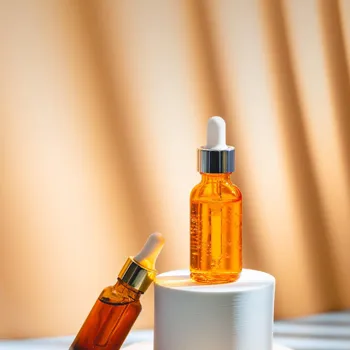
But what exactly are these potent elixirs, how do they work their magic, and why should you consider incorporating one into your daily skincare routine? Let's delve into the science behind serums and uncover the secrets to unlocking their transformative potential.
Serums deliver potent ingredients for various skin concerns effectively
Serums are essentially concentrated formulations designed to deliver high concentrations of active ingredients directly to the skin.
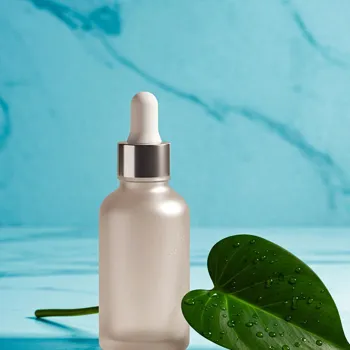
Unlike heavier creams and lotions, serums have a smaller molecular size, allowing them to penetrate deeper into the skin's layers and address specific concerns more effectively.
Think of them as targeted treatments that can tackle everything from fine lines and wrinkles to hyperpigmentation and dullness. The beauty of serums lies in their versatility – there's a serum for virtually every skin type and concern, making them a customizable addition to any skincare regimen.
Whether you're battling dryness, acne, or the signs of aging, there's a serum out there waiting to become your skin's new best friend.
Serums contain key ingredients targeting specific skin concerns
The power of a serum stems from its carefully selected active ingredients. These ingredients can range from antioxidants like vitamin C and E, which protect the skin from free radical damage, to hydrating agents like hyaluronic acid, which draws moisture into the skin.

Other common ingredients include retinol, a potent anti-aging ingredient, peptides, which stimulate collagen production, and niacinamide, which helps to improve skin tone and texture.
The specific combination of ingredients in a serum will determine its primary function and the skin concerns it's designed to address. When choosing a serum, it's important to consider your individual skin type and the issues you're hoping to target.
Reading labels and researching ingredients will help you make an informed decision and select a serum that's right for you.
Serums deliver targeted skincare benefits effectively
One of the key benefits of using a serum is its ability to deliver targeted results. Because of their high concentration of active ingredients, serums can effectively address specific skin concerns, such as reducing the appearance of wrinkles, brightening the complexion, or clearing up acne.

For example, a serum containing vitamin C can help to fade dark spots and improve skin tone, while a serum containing hyaluronic acid can plump up the skin and reduce the appearance of fine lines. Serums also work synergistically with other skincare products, enhancing their effectiveness.
By applying a serum before your moisturizer, you can create a more receptive base for your moisturizer to penetrate and lock in hydration.
Serums have lightweight texture, absorb quickly, ideal for all skin types
Another advantage of using serums is their lightweight texture. Unlike heavy creams and lotions, serums are typically water-based or oil-based and have a thin, fluid consistency. This allows them to absorb quickly into the skin without leaving behind a greasy or sticky residue.
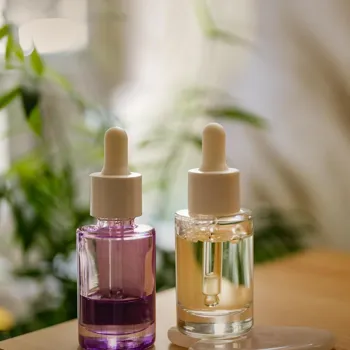
This makes serums ideal for use in the morning, as they won't interfere with makeup application. They are also suitable for all skin types, even oily or acne-prone skin, as they won't clog pores or contribute to breakouts.
The lightweight texture of serums makes them a comfortable and convenient addition to any skincare routine.
Choose the right serum based on skin concerns & ingredients
With so many serums available on the market, it can be overwhelming to choose the right one for your skin. Start by identifying your primary skin concerns. Are you looking to reduce the appearance of wrinkles, brighten your complexion, or clear up acne?
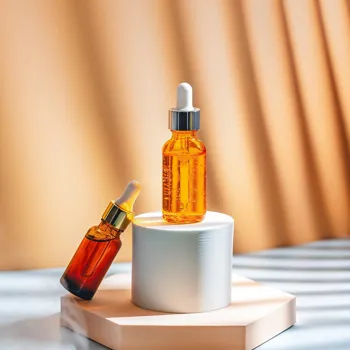
Once you know what you want to target, look for serums that contain ingredients known to address those concerns. For example, if you're concerned about wrinkles, look for a serum containing retinol or peptides. If you want to brighten your complexion, look for a serum containing vitamin C.
It's also important to consider your skin type. If you have dry skin, look for a serum that contains hydrating ingredients like hyaluronic acid or glycerin. If you have oily skin, look for a serum that is oil-free and non-comedogenic.
Always do a patch test before applying a new serum to your entire face to ensure that you don't have any adverse reactions.
Incorporate serum in skincare routine for healthier, radiant skin
Incorporating a serum into your skincare routine is a simple yet effective way to boost your skin's health and appearance. To maximize the benefits of your serum, apply it after cleansing and toning, but before moisturizing.
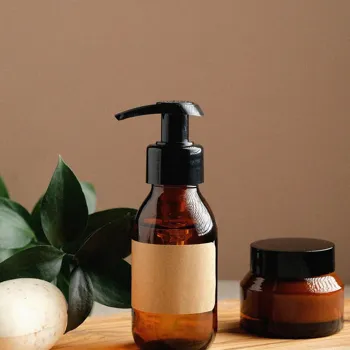
A little goes a long way, so use only a few drops and gently massage it into your skin. Allow the serum to fully absorb before applying your moisturizer. For best results, use your serum consistently, both morning and night.
With regular use, you'll notice a visible improvement in your skin's texture, tone, and overall radiance. So, what are you waiting for? Unlock the transformative power of serums and discover the secret to a healthier, more youthful-looking complexion.
AI Generated Content. Glance/InMobi shall have no liability for the content











